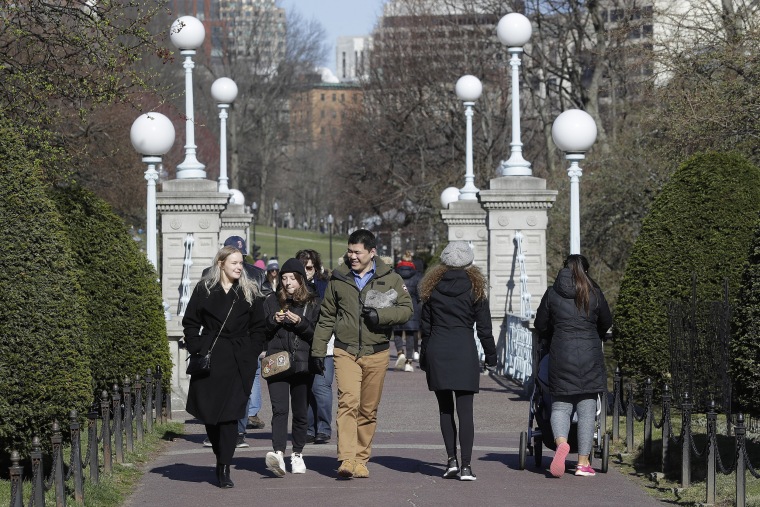The governors of Michigan, Indiana, Oregon and West Virginia on Monday issued stay-at-home orders in their states to slow the spread of the coronavirus.
Massachusetts Gov. Charlie Baker, meanwhile, announced a stay-at-home "advisory" for the state's nearly 7 million residents.
The order in Michigan is effective at 12:01 a.m. Tuesday and will last for at least the next three weeks, Gov. Gretchen Whitmer said in a news release.
"In just 13 days, we've gone from 0 to over 1,000 COVID-19 cases," Whitmer said in the release. "This is an unprecedented crisis that requires all of us working together to protect our families and our communities."
She continued: "The most effective way we can slow down the virus is to stay home. I know this will be hard, but it will be temporary. If we all come together, get serious, and do our part by staying home, we can stay safe and save lives."
Baker also ordered all nonessential businesses in Massachusetts to close until at least April 7, beginning Tuesday.
"These aggressive social distancing measures put in place today are designed to give public experts the time they need to ramp up additional steps that must be taken to effectively push back the virus," Baker said, adding that other parts of the world have shown this is possible.
Baker drew a distinction between his stay-at-home advisory and shelter-in-place mandates.
"I do not believe I can or should order U.S. citizens to be confined to their home for days on end," he said. "It doesn't make sense from a public health point of view, and it's not realistic."
He urged people to avoid any "unnecessary activities" and said they could still go to the grocery store, pharmacy and "of course, take a walk around the block or at the park."
Grocery stores, pharmacies and other businesses that provide essential goods and services will continue to operate.
Indiana Gov. Eric Holcomb said he was calling on all Hoosiers to hunker down to help flatten the curve to ensure the state's health care system is able to treat the most vulnerable.
"I'm telling you, the next two weeks are critical — that's March 24 through April 7 — if we're going to slow the spread, and we must slow the spread," Holcomb said in a statement.
Whitmer's statement defines essential employees as those who work in health care, public health and safety, law enforcement and grocery stores, among others.
Philadelphia Mayor Jim Kenney also issued a stay-at-home order Monday. In a tweet, he urged residents: "Please. Stay. Home."
Maryland Gov. Larry Hogan ordered all nonessential businesses to close by 5 p.m. Monday but stopped short of declaring a full lockdown in the state.
"This is NOT a shelter-in-place order," his communications director, Mike Ricci, tweeted Monday. "However, we are URGING Marylanders to STAY HOME as much as possible. If you don't need to leave your neighborhood, you should not leave your neighborhood."
Similar sweeping mandates have been made in other states, including California, Illinois, New Jersey, New York and Pennsylvania.
In California, many people flocked to beaches and parks over the weekend, prompting a response from Los Angeles Mayor Eric Garcetti.
"This weekend we saw too many people packing beaches, trails and parks," Garcetti tweeted Sunday night. "So we are closing sports and recreation at @LACityParks and closing parking at city beaches. That doesn't mean gather elsewhere. This is serious. Stay home and save lives."

